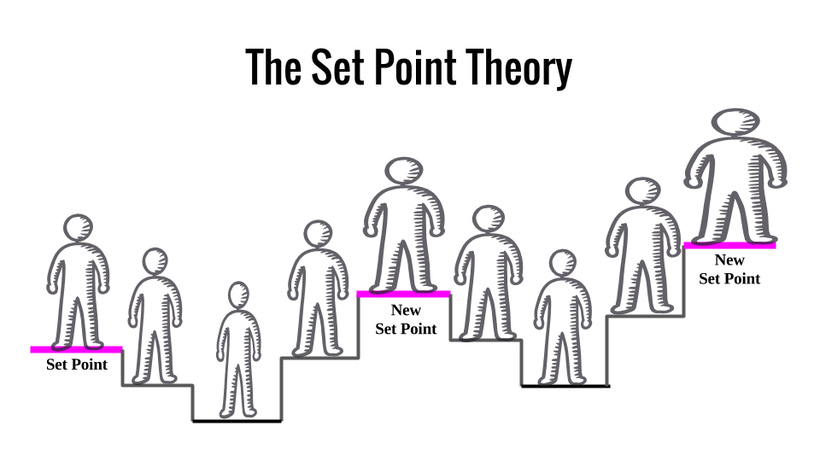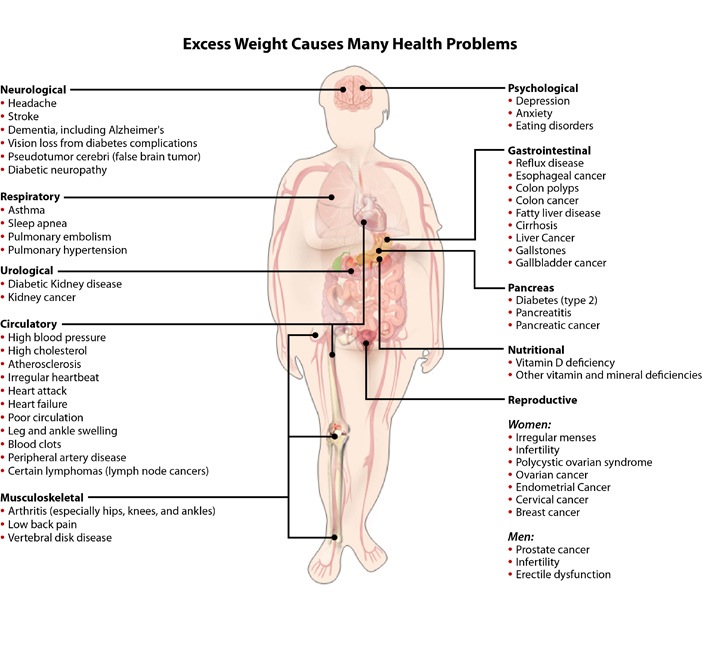Obesity-Modifying Treatments
Health gains as a result of reduced adiposity
Weight loss is the burning of excessive calories from your body. For it to occur, your intake of calories must be less than the number of calories burnt. However, it isn’t as simple as that , because as you lose weight, the rate of weight loss will slow down or plateau after a while. As frustrating as this is, it is a normal phenomenon. It occurs because a series of events which take place in the body, which are NOT under voluntary control (also known as the body’s physiological response).
Some of these include:
- Reduced energy expenditure (i.e. your body becomes more efficient in burning calories, so in the longer term, you end up burning fewer calories)
- Changes in the appetite-regulating hormones, which increase your hunger and reduce your feeling of fullness, after eating (reduced satiety)

The body is "hard-wired" to defend its adiposity (ie the amount of "fat" /adipose cells in the body) as a means of survival. This process is called "metabolic adaptation" and helps to explain why most people living with obesity will experience a relapse.
Effective anti-obesity treatments work to counterbalance metabolic adaptation.

Also let's not forget that some health improvements resulting from reduced adiposity persist, even if a small amount of weight is subsequently regained.
We know more about adipose "fat" cells today than we did 25 years ago. Science has shown that these adipose cells are very active in producing various chemical signals which have several roles including:
- provide the brain with regular updates on the body's adipose stores, which in turn determines if metabolic adaptation needs to be activated (or not)
- promote inflammation in the body
- contribute to insulin resistance
Adipose tissue is made up of many adipocytes ("fat" cells)
Therefore, as expected, even with moderate weight loss, blood tests have shown reduced inflammatory markers. Clinically many patients report improved symptoms of their inflammatory conditions.
In addition, to healthy lifestyle interventions which are the FOUNDATION of chronic disease management, the recommended first-line adjunct anti-obesity therapies are non-surgical. However, it is acknowledged that for some individuals with Class 3 Obesity, more intensive therapy may be required, and at least should be discussed.
Untreated
Untreated the body can develop a number of Untreated the person living with obesity may develop any number of obesity-related complications which can be broadly divided into 3 categories: METABOLIC, MECHANICAL and/or MENTAL-HEALTH.












